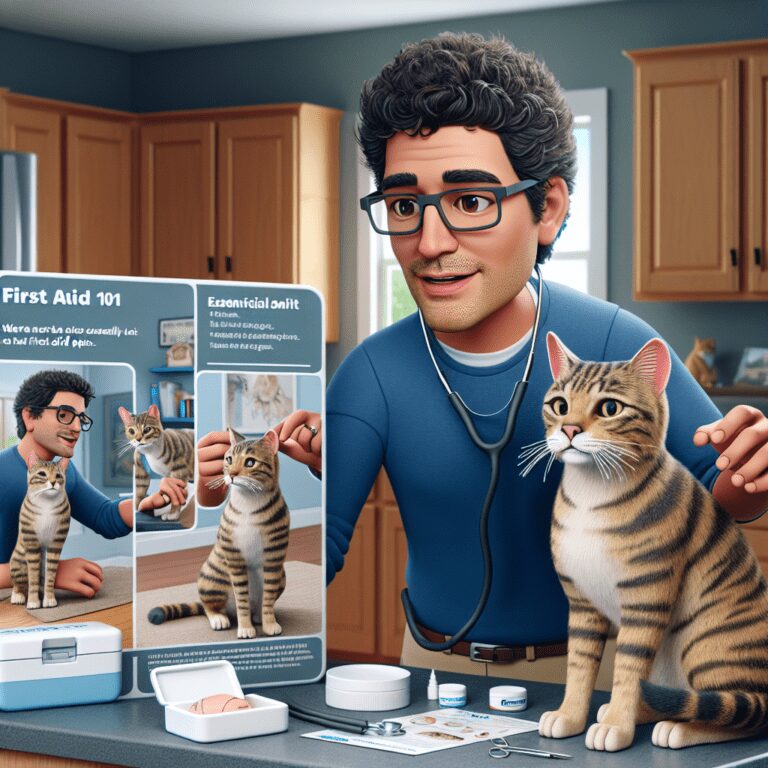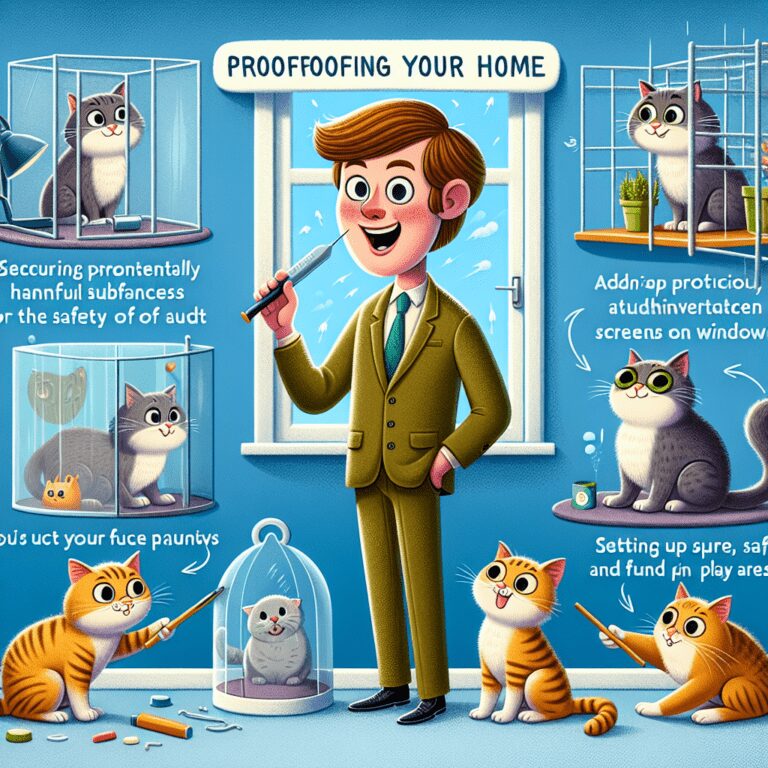

Cats are delightful companions, bringing joy through their playful antics and unique personalities. However, their quirkier behaviors, such as scratching at the door, can leave cat owners puzzled. This article explores the reasons behind this behavior, with insights into feline instincts and effective strategies to address it. By understanding why your cat scratches at the door, you can enhance their environment and strengthen your bond.
Features of the Cat’s Scratching Behavior
When observing your cat scratching at the door, several notable features stand out. These include the intensity of the scratching, the frequency, the time of day, and the type of door being targeted. Some cats use their front claws more aggressively, while others may simply (but persistently) nudge or paw at the surface. Recognizing these features can offer valuable clues about your cat’s emotional state and motivation.
Another prominent feature is the vocalization that often accompanies door scratching. Cats may yowl or meow while exhibiting this behavior. This combination of sound and action draws attention to their desires. It’s crucial not to overlook these vocalizations; they serve as critical signals of what your cat wants or needs.
Overview of Scratching Behavior
Scratching is a natural feline behavior that serves various purposes. For cats, it functions as a means of communication, an expression of needs, and a way to mark territory. When your cat scratches at the door, it communicates urgency, curiosity, or frustration. This behavior can often stem from instincts that have been ingrained over centuries of evolution as independent hunters and territorial animals.
Understanding these behaviors not only helps in addressing them but also underscores the importance of providing an enriching environment for your cat. Maintaining a balance between their instincts and your household dynamics can lead to a more harmonious living situation for both pets and owners.
Why Do Cats Scratch at Doors?
Cats scratch at doors for several reasons, each tied to their instincts and social needs. Here are the primary motivations:
- Curiosity: Cats often want to explore areas they cannot access. The door represents a barrier to their curiosity, motivating them to engage in scratching.
- Attention-Seeking: A cat may scratch the door to get your attention, especially if they’re feeling ignored or bored.
- Hunting Drive: This behavior might be linked to their instinct to hunt, as they may perceive movement or sounds on the other side of the door.
- Territorial Marking: Cats have scent glands in their paws. Scratching can help mark their territory and assert their presence.
- Separation Anxiety: Some cats experience anxiety when left alone. They might scratch the door to signal their distress or desire to reunite with their owners.
By recognizing these motivations, you can take steps to meet your cat’s needs, reducing the likelihood of scratching behavior.
Who Experiences This Behavior?
Cats of all breeds and ages can exhibit scratching at doors, although certain factors increase the likelihood. Kittens may engage in this behavior out of sheer curiosity, while older cats might do so because of behavioral changes or health issues. Rescue cats may display increased anxiety and scratching as they adjust to a new home environment. Owners of single cats might notice this behavior more frequently, as the absence of companionship can lead to increased attention-seeking.
Recognizing patterns in your cat’s behavior and understanding their specific needs will help tailor your approach. Each cat is unique, so a solution effective for one may not work for another.
What is the Impact of Door Scratching?
Scratching at the door can impact both the cat and the household. On the one hand, it reflects the cat’s need for expression and connection. On the other hand, it can lead to frustrating situations for owners. The noise can disrupt peace, and constant scratching might damage doors or adjacent furniture.
Unaddressed scratching can cause stress for the cat, leading to behavioral issues or health problems stemming from anxiety. The key is finding an approach that satisfies both the cat’s instincts and the owner’s need for a harmonious home.
Where and When Does This Behavior Occur?
Cats tend to scratch at doors located in high-traffic areas. This is usually where they observe the most interaction from family members. Front doors, bedroom doors, and bathroom doors are common scratching targets, mainly when they sense someone on the other side.
This behavior most commonly occurs during times when their owners are home but seemingly inaccessible. Early mornings, late evenings, or anytime someone is preoccupied are prime moments for scratching behavior. Many cats seem particularly motivated when they witness movement behind a closed door.
How to Address Door Scratching
Resolving scratching behavior involves several practical approaches. Consider these strategies:
- Provide Distractions: Introduce interactive toys to keep your cat occupied when they’re likely to scratch.
- Create Accessible Spaces: Allow your cat to safely explore areas they show interest in. Baby gates can provide visibility without complete access.
- Use Positive Reinforcement: Reward your cat for using designated scratching surfaces, such as scratching posts.
- Consider Pheromones: Synthetic pheromones can help calm your cat and reduce anxiety.
- Keep Doors Engaged: Allow supervised time near doors to satisfy their curiosity while reinforcing boundaries.
Implementing these techniques can lead to a more peaceful environment, reducing the propensity for door scratching.
Pros and Cons of Addressing Scratching Behavior
Each method to address scratching behavior comes with its benefits and challenges.
Pros:
- Enhances the cat’s well-being through tailored activities.
- Strengthens the bond between you and your cat.
- Reduces damage to household items.
Cons:
- Some solutions may require increased time and effort.
- Not every approach will suit every cat; trial and error might be necessary.
- Initial resistance to changing behavior may occur.
By weighing these considerations, owners can develop an effective strategy that suits both their lifestyle and their feline’s needs.
Similar Behaviors and Alternatives
Door scratching is just one variety of feline communication. Other behaviors to be aware of include:
- Meowing at Doors: This signals demand, much like scratching.
- Pawing at Windows: A sign of wanting to observe the outside world.
- Excessive Grooming: Indicates anxiety or stress, potentially linked to similar separation issues.
Recognizing these behaviors can help in providing immediate care and attention, ensuring a happier, healthier feline companion.
FAQs
Q1: Is scratching normal behavior for cats?
A1: Yes, scratching is a natural instinct for cats used for marking territory, sharpening claws, and expressing emotions.
Q2: Can scratching at the door indicate anxiety?
A2: Absolutely, scratching can be a sign of separation anxiety or stress in cats, especially when they are left alone for extended periods.
Q3: What can I do if my cat won’t stop scratching at the door?
A3: Try enriching their environment with toys, climbing structures, and interactive playtime to address their curiosity and desire for attention.
Q4: Is it okay to scold my cat for scratching?
A4: Scolding is not recommended, as it can cause fear. Instead, redirect their behavior positively with encouragement and reward.
Q5: Should I provide a scratching post?
A5: Yes, scratching posts are essential as they help satisfy the natural urge to scratch, protecting your furniture and doors from damage.
Instantly Access Your FREE Children’s Books Here!
Disclaimer: As an Amazon Associate, I earn from qualifying purchases. I may earn a commission from qualifying purchases as an affiliate. Please note that I only recommend products I believe will provide value to my readers.







